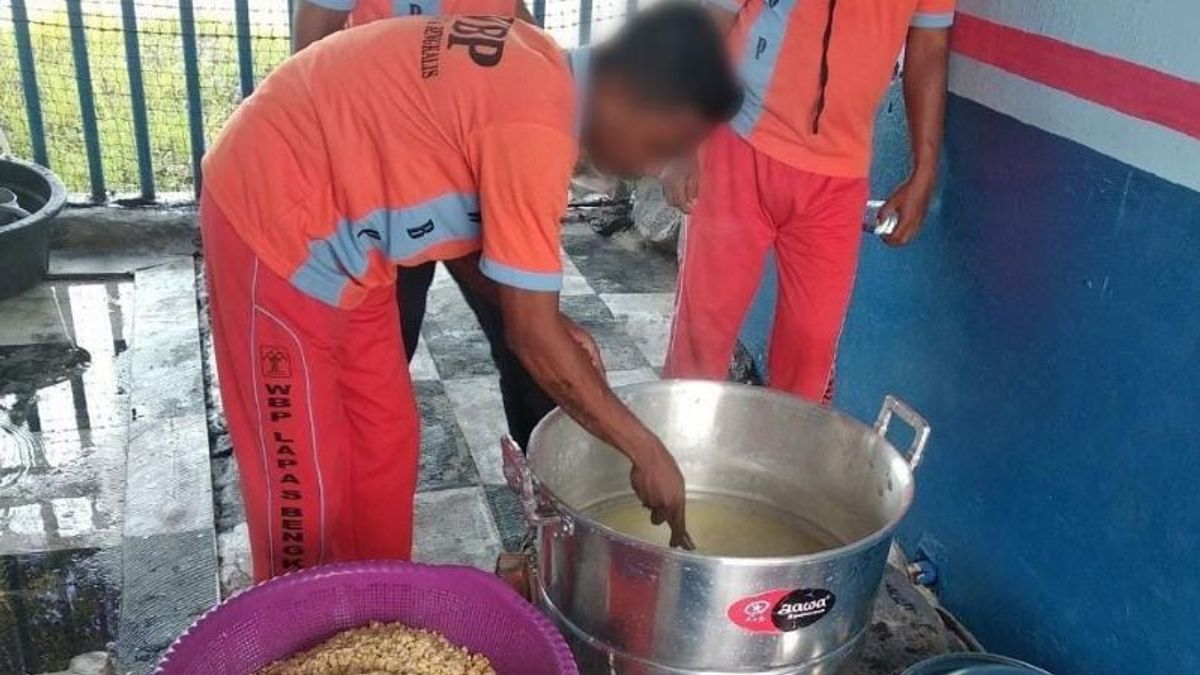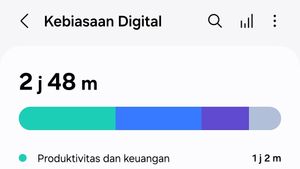RIAU - A total of five inmates at the Class IIA Bengkalis Prison, Riau produces tempeh starting from 20 kg tempeh per day to meet the needs of Correctional Inmates (WBP). Tempe is a food that is very popular with the people in Indonesia.
In prisons and detention centers, tempeh is also a mandatory food menu for inmates. Almost every day, tempeh is included in the list of food menus ordered by the Directorate General (Ditjen) of Corrections.
"Therefore, prisons must consistently carry out coaching activities. Give the WBP expertise as well as possible, do it by increasing the skills program. The community must also support it, by participating in buying and using WBP products," said Head of the Riau Ministry of Law and Human Rights Regional Office MHd. Jahari Sitepu in Pekanbaru, Antara, Friday, July 8.
Mhd. Jahari Sitepu even visited Bengkalis Prison some time ago and had time to review the process of making the tempeh. Hari strongly supports this activity and hopes that more WBPs will be involved.
In addition to its delicious taste and high protein, it turns out that tempeh is able to fight free radicals and prevent diabetes. No wonder tempeh is now a global food, already penetrated the Australian, European and American markets.
Previously, to capture the lucrative market opportunity, one of the Bengkalis prison officers conveyed his idea to the Head of Bengkalis Prison Work Activities Novindra Pajinjing Siahaan.
"Instead of providing food ingredients (bame contractors) for prisoners buying in the market, it's better for us to make tempeh and sell them, sir. We can profit, WBP gets knowledge and there are activities in prisons, so they don't get stressed serving sentences. If WBP is not stressed, prisons are safe and orderly, sir,” he also said.
After obtaining approval from the Head of Class IIA Bengkalis Prison Edi Mulyono, the prison then recruited 5 WBPs who would be guided and trained on how to make tempeh. The coach was not arbitrary, the Bengkalis Prison brought in a well-known tempeh entrepreneur on Bengkalis Island.
"This WBP is now able to build tempeh. Every working day starting at 08:00 WIB-11.00 WIB, they work under the escort and guidance of prison officers. It doesn't have to be far away and it's hard to think about marketing, we sell it to the contractor for the prisoner's food here. The contractor was shocked, it turned out that the results (the production of tempeh) were of quality and not inferior to those sold on the market,” said Bengkalis Kalapas Edi Mulyono.
Currently, WBP is only able to produce 20 kg of tempeh per day with a profit of Rp. 140 thousand. Business capital was obtained from the Bengkalis Prison Employee Cooperative, while fortunately it was divided into cooperatives, WBP, and deposited into the state as PNBP (non-tax state income).
ZAD (28), one of the inmates who took part in this activity, told the story of the raw material for making tempeh, namely quality soybeans, yeast, and plastic. It is needed a room where the air circulation is small, thus making the room warm and good for the fermentation process.
The manufacturing process begins with the selection and washing of soybeans, then is soaked for 12 hours and peels its skin. Then boiled, drained, and sprinkled with 1 tablespoon of yeast for 1 kg of soybeans. Then wrapped in plastic and fermented in a room with a temperature of 38-40 degrees Celsius for 1 day.
"I am very grateful for the skills given by the prison. I went to prison for stealing, at that time I was unemployed. Now I already have expertise, I will become a tempe entrepreneur. The hope is not only to make tempeh, but also production of various types of tempeh processing," he said excitedly.
The English, Chinese, Japanese, Arabic, and French versions are automatically generated by the AI. So there may still be inaccuracies in translating, please always see Indonesian as our main language. (system supported by DigitalSiber.id)









